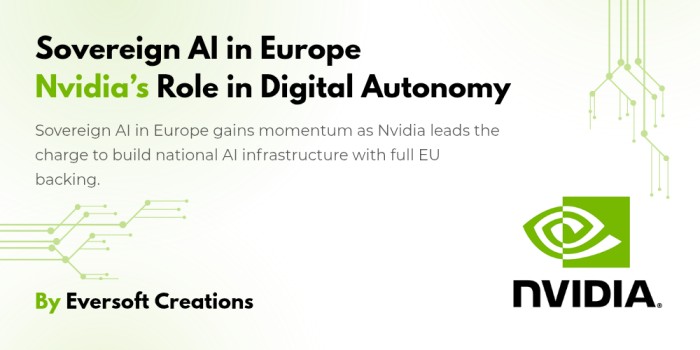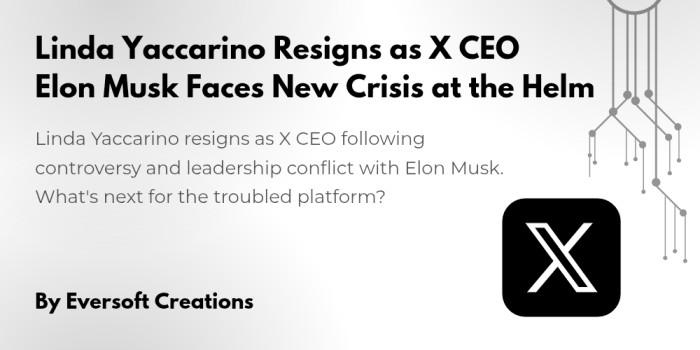Over the past few months, the topic of sovereign AI has been a mainstream trend in both the technology and politics of Europe. Amid the urge to diminish dependency on the foreign cloud giants, the message of getting national AI infrastructures promulgated by Nvidia appeals to the European management. The trend of a sovereign AI in Europe represents a defining moment in understanding how countries view artificial intelligence- they now understand the importance of independence, control of locality data, and culture-sensitivity.
What is Sovereign AI and Why It Matters
Sovereign AI is the evolution of artificial intelligence and usage of AI systems under national or regional control. The essence is making sure the AI systems resonate with the local laws, languages, ethics values, and strategic interests.
This practice is becoming very vital to Europe. The continent has been relying since long on the United States-based technology giants such as Microsoft, Google, and Amazon regarding cloud computing and Artificial Intelligence services. Despite its effectiveness, this dependency evokes the concern of privacy of the data, economic competitiveness, and the enforcement capability of the local regulations.
Key Reasons Behind the Push for Sovereign AI in Europe
- Data sovereignty: Maintaining citizen data inside the nation and within local jurisdiction.
- Regulatory control: Obeying EU regulation such as GDPR.
- Cultural matching: Creation of models that respect and comprehend the local languages and norms.
- Local economic growth: Prodding the local AI systems and start-ups.
Nvidia’s Role in the European Sovereign AI Movement
The most prominent global companies known to provide the most powerful GPUs and AI platforms are Nvidia, which should become the key actors in advancing sovereign AI. Jensen Huang, who is a CEO, has continually insisted on efforts to make every country work on its AI development. His message has been well received in Europe.
Major Nvidia Initiatives Supporting Sovereign AI in Europe
- Partnership with France’s Mistral AI: Nvidia has recently supplied a state of the art hardware to run one of Europe super computer centers AI.
- AI Gigafactories Plan: Nvidia is assisting in planning several multi-billion-euro investments in 4 key data and AI hubs in the EU.
- Deutsche Telekom Collaboration: In Germany Nvidia has partnered with Telekom to build a sovereign cloud AI infrastructure.
Acting as an infrastructure provider but helping Europe be more independent, Nvidia takes a role of an enabler rather than a monopolistic vendor.
Sovereign AI in Europe Gains Political Backing
The sovereign AI agenda is not only a technology project, but it already has become a political agenda in multiple nations in the EU.
UK
- Prime Minister Keir Starmer recently committed £1 billion to expand domestic AI supercomputing resources.
- The UK plans to become an “AI maker, not an AI taker.”
France
- President Emmanuel Macron has even referred to AI infrastructure as a struggle to win the so-called digital sovereignty.
- Strong collaborations between Nvidia and French technology it giants were highlighted in the VivaTech conference held in France.
Germany
- Chancellor Friedrich Merz is in favour of massive sovereign cloud infrastructure.
- The participation of Nvidia in Deutsche Telekom enjoyed political acclaim.
European Union
- EU is investing more than 20 billion euros in the establishment of gigafactories of AI.
- A unified approach among the member states is emerging in which they will curtail dependence on third-party platforms.
Economic Impact of Sovereign AI in Europe
The economic consequences of the sovereign AI in Europe are enormous. The early adopters of sovereign infrastructure are likely to win a strong competitive edge given that AI is becoming a reliable pillar of productivity and innovation.
Expected Economic Benefits
- Employment: The new opportunities with AI development, data engineering, cybersecurity, and similar data center jobs.
- Ecosystem development: The local AI startups also enjoy the sovereign AI infrastructure.
- Digital export possibilities: The sovereign nations could sell their services and infrastructure to others.
- Less attachment to clouds: cheaper and more compatible with the state budgets.
Challenges to Building Sovereign AI in Europe
On the one hand, there is much enthusiasm related to the establishment of sovereign AI in Europe, but on the other hand, it is fraught with a variety of difficulties:
1. Infrastructure Costs
The development of AI-enhanced data centers demands a billions-worth initial investment. EU programs, though ambitious, however require immense amounts of private investments to work out.
2. Energy Consumption
Data centers based on AI consume a lot of energy. Even now, approximately 3 percent of the EU electricity goes to data centers. Green power sources and control will become the major factors.
3. Talent Shortages
Europe lacks professional AI labor. The initiative of Sovereign AI will need intense upskilling and learning activities.
4. Fragmentation Risk
Diversity is the strength of Europe – however, it may result in disintegrated norms, platforms, and priorities between countries.
The Strategic Edge: Why Sovereign AI in Europe Must Succeed
In Europe, sovereign AI is not merely a shift in technology. The need to be strategic is part of the requirement. The reliance on foreign-controlled platforms in a world that uses AI in military systems, healthcare systems, financial system, and communication systems is fast becoming perceived as the weak point.
Transforming Europe into a sovereign AI nation will also enable the continent to label itself a tech front runner but also a zone within which European value, rules, and democracies can be guarded safely.
Sovereign AI in Europe: Global Implications
The sovereign AI movement in Europe can become an example to other countries. Others such as India, Brazil and Japan are already charting on their course to sovereign AI. The fact that Nvidia is a neutral technology provider but not a centralized platform itself may become a pattern to be followed by tech companies cooperating with governments all over the world.
Nvidia’s Long-Term Vision
Nvidia is not only selling chips, but also building the future of the interaction between nations and AI. Through developing sovereign AI in Europe, Nvidia can rest assured that its technologies will continue to be in more relevant demand, needed, and highly entrenched in relevant national systems of kinetic processes.
The company has been successful to balance the global footprint and national sovereignty and this makes it very unique among the hyperscalers such as Amazon and Microsoft.
Conclusion: A Sovereign Future for AI in Europe
In Europe, sovereign AI is not a projection anymore; it is an underway reality. Now that Nvidia will be pushing the hardware and infrastructure, and the EU countries the policy, funding and political will, the continent is manifestly moving towards a future in which AI will honor its laws, languages and local values.
Nevertheless, this vision is to be attained through further investment, close cooperation, and adherence to sustainable inclusive innovation. In case it succeeds, Europe can become not only a user of AI technologies but also one of the leaders in the AI creation that would be ethical, independent, and AI-sovereign.
Visit Eversoft Creations for more tech related updates.



